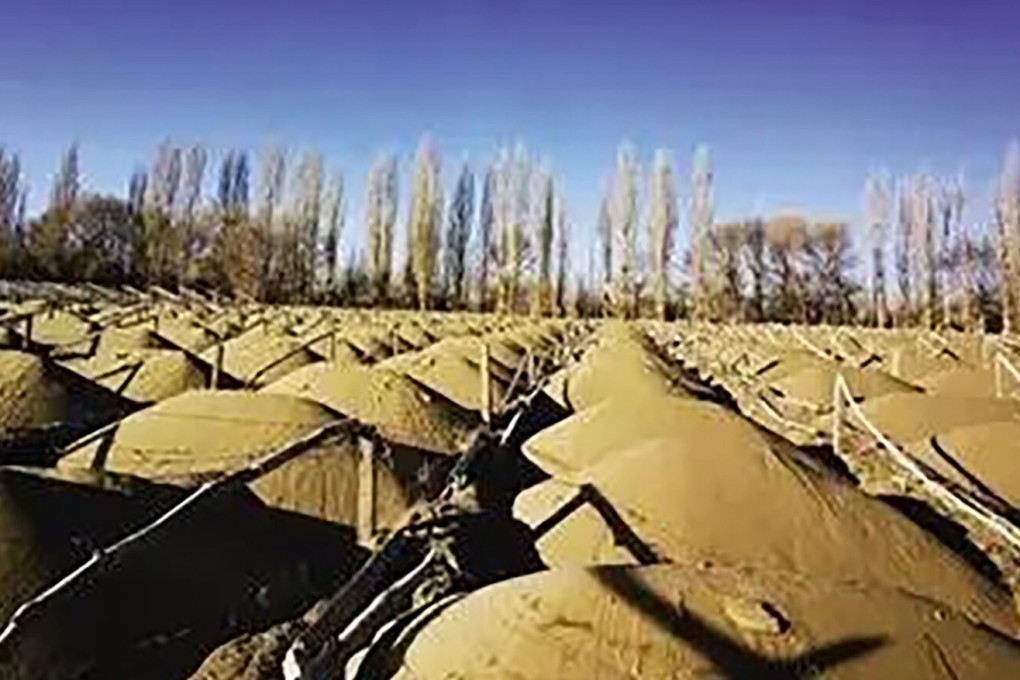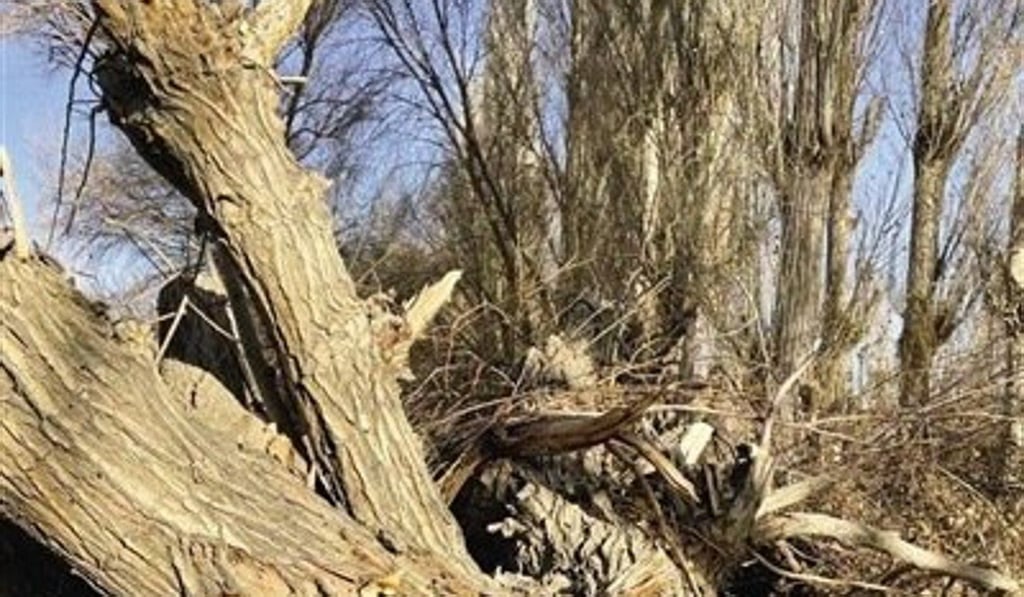Chinese environmentalists delighted as Beijing inquiry backs Dunhuang deforestation claims
- Central government team finds significant deforestation at state-owned Yangguan Forest Farm in Gansu province to make way for commercial vineyards
- ‘By rejecting the claims of the Gansu government, the [central government] team showed the inquiry wasn’t just a cover-up’, ecology expert says

After nearly two months of field investigations, drone mapping, remote sensing and interviews, the central government team ruled that there had been significant deforestation – centred on the southwestern section of the farm – though not to the extent claimed by local media reports.
Since 1990, the size of the forested area had been reduced by 2.23 sq km (0.86 square miles) – or 42 per cent of the total – while the amount of land given over to vineyards had tripled to 2.37 sq km, it said.
It also said that about 0.38 sq km of the deforested land had been used by the privately owned Dunhuang Wine Company from 2013 to 2014 to cultivate grapes and jujube trees.

The forest farm was established in the 1960s in a bid to counter the effects of desertification in the Dunhuang area, which lies to the southeast of the Kumtag Desert. But deforestation, along with unlicensed logging and the mismanagement of land and water resources had undermined the project, the report said.